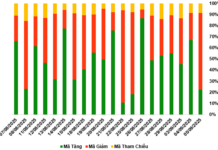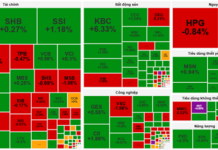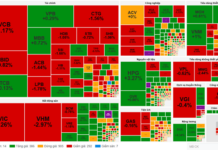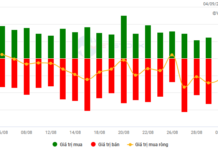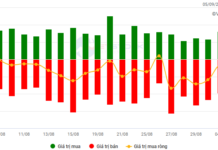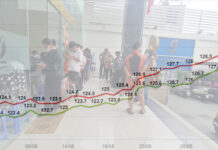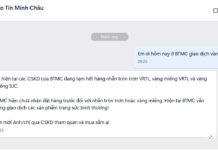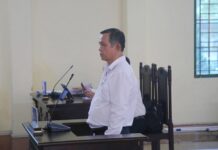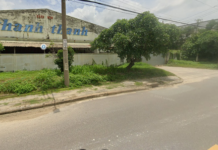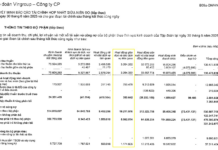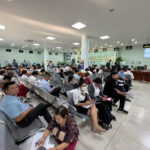Withdrawal of Applications for Land-Use Conversion: Understanding the Reasons
In a contribution to the draft law amending and supplementing a number of articles of the Land Law, regarding land use fees in the context of changing land-use purposes, Mr. Le Hoang Chau, Chairman of the Ho Chi Minh City Real Estate Association (HoREA), pointed out certain articles in the current legislation that affect land users.
Specifically, Article 159, Clause 1 and Clause 4 of the 2024 Land Law, and Article 8, Clause 1 of Decree 103/2024 stipulate that the land price for calculating land use fees is based on the land price framework.
As a result, when households and individuals change the purpose of land use, the fee is calculated as 100% of the land price in the framework for the entire area, regardless of whether it is within or beyond the limit.
This has led to extremely high land use fees for people, exceeding their financial capacity and resulting in many withdrawal requests. For instance, a 400-square-meter plot of land in the old Vinh City incurred a land use fee of VND 4.5 billion, while in Ho Chi Minh City, a 208-square-meter plot in Hoc Mon district (formerly) required VND 1.7 billion for conversion to residential land, and a 400-square-meter plot in District 7 (formerly) faced a staggering VND 14 billion fee.
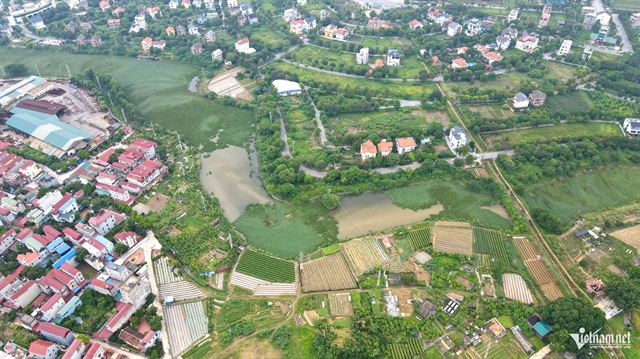 Proposed reduction of land use fee to 20% for conversion purposes, with a refund for the difference previously paid by citizens. Image: Thach Thao |
Article 45, Clause 5 of the Land Law and Article 18, Clause 11, Point c of Decree 101/2024 have introduced a policy allowing citizens to defer land use fees without a time limit. The previous Land Law of 2013 only permitted a five-year deferment.
However, Mr. Chau highlighted that this deferment comes with significant restrictions on important rights, including the inability to transfer, assign, lease, mortgage, sublease, donate land use rights, or use land as capital contribution.
This means that even with the “red book” (land-use right certificate), households and individuals are unable to use it for transactions or borrow money for business purposes.
Additionally, the withdrawal of applications for the “red book” may negatively impact the effectiveness of state management and lead to underground transactions and markets, as people can still transfer land through handwritten documents without the “red book.” This situation also makes it challenging to protect the legitimate rights and interests of households and individuals.
Proposal to Reduce Land Fees to 20% for Conversion Purposes
To address these issues, in Clause 2, Article 1 of the draft Decree amending and supplementing a number of articles of Decree 103/2024 (the third time), the Ministry of Finance proposed reducing the land use fee after changing the purpose of land use. The fee would be calculated as 30% of the land price in the framework for the area within the land allocation limit and 50% for the area exceeding the limit for households and individuals.
Nevertheless, according to Mr. Chau, this calculation method still results in high land use fees for households and individuals.
Therefore, HoREA recommends that the fee should be calculated as 20% of the land price in the framework for the area within the land allocation limit and 30% for the area exceeding the limit.
To provide a legal basis for amending Clause 1, Article 8 of Decree 103, and to apply lower land use fee rates for areas within the limit and higher rates for areas exceeding the limit when the State permits changes in land-use purposes or recognizes or extends the land-use rights of households and individuals, it is necessary to amend Point a, Clause 1, Article 159 of the 2024 Land Law, as suggested by Mr. Chau.
As Point a, Clause 1, Article 159 of the 2024 Land Law has not been amended, the Ministry of Finance is proposing to develop a draft resolution of the Government, which is expected to authorize local authorities to decide on the method of calculating land use fees for households and individuals when their land-use rights are recognized or when they change the purpose of land use.
However, according to the Law on the Issuance of Legal Documents of 2025, a resolution of the Government is issued only to address urgent and important issues arising in practice. In the long run, it is necessary to amend Point a, Clause 1, Article 159 of the 2024 Land Law.
Additionally, to protect the interests of citizens, Mr. Chau suggested including a transitional provision in the new policy, allowing the People’s Committees of provinces to refund the difference in land use fees that households and individuals have previously paid according to the 100% rate when converting to residential land use.
Nguyen Le
– 19:42 09/03/2025
“Withdrawn Applications for Residential Land Use, Yet Tax Debts Still Leave People ‘Hanging’: The Tax Department Explains Why”
The hefty land-use conversion tax has burdened many residents, who, after withdrawing their applications, were still faced with outstanding tax liabilities and late payment penalties by the tax department. This has left them wondering, “Why are we still penalized despite the land registry office’s approval of our withdrawal?”
The Ho Chi Minh City Tax Department Requests an Emergency Meeting to Clear Backlogged Land Records
The Ho Chi Minh City Tax Department has proposed that land-related dossiers arising from August 1st onwards, prior to the People’s Committee of Ho Chi Minh City’s decision to adjust the new land price framework, should be subject to the old land prices for financial obligation calculations.

